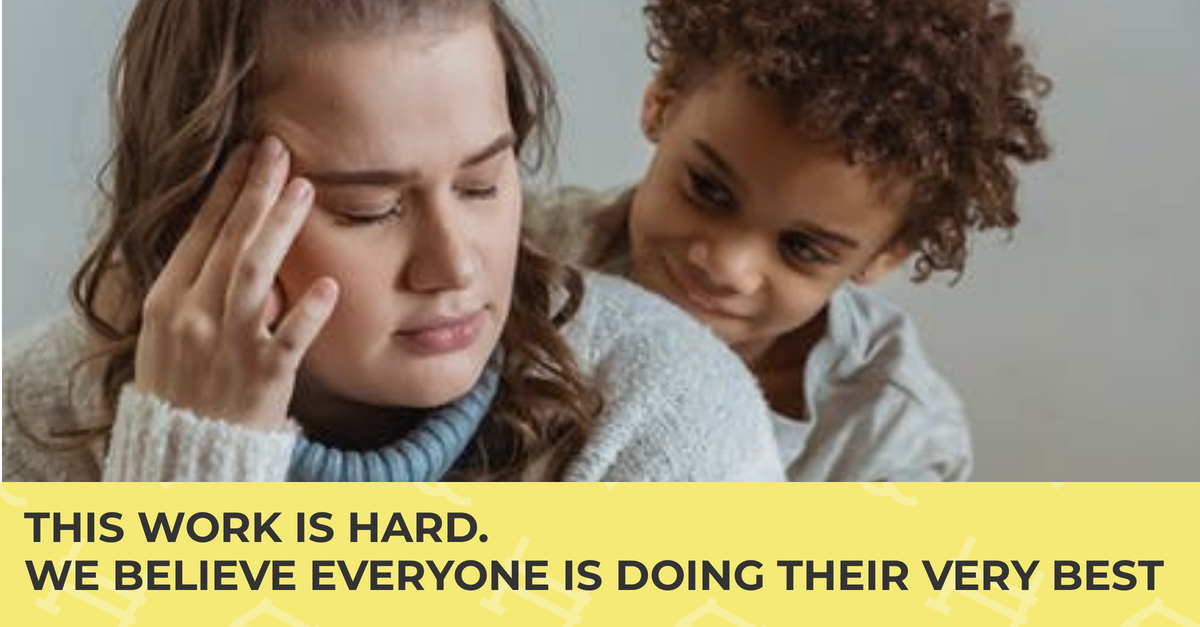This Work Is Hard
Apr 01, 2022This work can be frustrating. Whether you're a parent, a caseworker, a program director, or a mentor - working with complex trauma is well...complex. Caseworkers can be intrusive and demanding. Kids can be intense. Parents can be overbearing and service providers can be self-righteous. Have you ever felt like you just want to shake someone?
You're not alone.
When complex trauma lives at the core of a whole bunch of different roles we can't expect it to be easy, so we need to stop expecting it to be. This is HARD work.

A case worker's job is HARD. We put young people just out of college in positions to remove children at all hours of the night from their parents and sit with them in an office as they beg everyone and anyone to please take this child in. If we ever feel like a caseworker should be doing a better job, we should be grateful they show up every day to do this one. Because they could choose a better job, one where they aren't hated.
A foster parent's job is HARD. Firstly, many people become foster parents because of infertility or family circumstances where their siblings or children can't take care of their kids. In both of these instances, fostering a child was not their first choice, not something they originally saw for themselves, and now they are thrust into a world where the Department of Children and Families is investigating whether they are worthy of housing children. That is all before they get a highly traumatized child in their life who will likely awaken any unhealed wounds in them...making for one big trauma soup.
Foster parents are not only asked to provide the basic needs for a child, but also sit alongside them as they digest the hurt they have undeservingly experienced. - Carrie Dahlin
An Executive Director's job is HARD. They have gone into this work to serve. They work endless days to be the change they wish to see in the world. Many don't get paid a livable wage...or a salary at all. They worry they may not get enough donations or funding to keep their organization afloat, and their biggest fear is failing the families they are dedicating their lives to serve.
Foster children's lives are hard. They have been removed from their family, bounced around to strangers, and endured trauma they will likely have to work their entire life to heal. But, we know that right? We all have empathy for children in foster care. It's not their fault. So why are we so quick to assign fault to adults. Where does the empathy go?
At Stable Moments we believe everyone is doing their very best. Sure, people need to be held accountable for actions, but when we find ourselves feeling frustrated at another human we need to pause. What is happening here? What might this person be experiencing? What might they need?
One child. One hour a week. One life changed.
Learn how to launch a program today.
Get new activities and trauma tidbits straight to your inbox!
We hate SPAM. We will never sell your information, for any reason.


